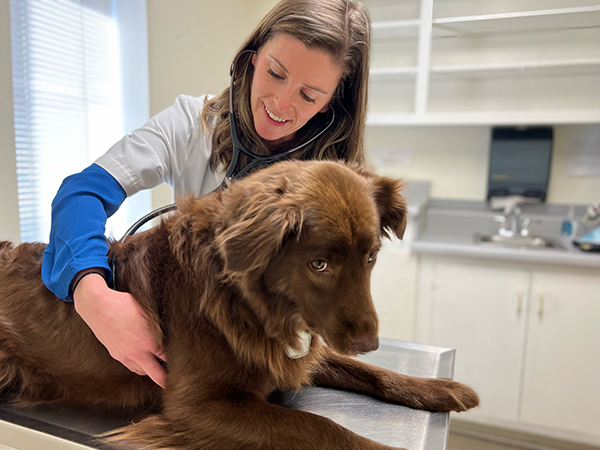Early Detection blood panels are designed specifically for certain age groups to help provide valuable baseline information and identify minor changes that may indicate early disease even when your pet may appear normal.
Tests performed in younger dogs and cats typically include a complete blood count (CBC), a blood chemistry profile, and a fecal screening. In dogs, a heartworm test and tick disease screening are also included. In cats, because some cats with heart disease do not have a detectable heart murmur on a physical exam, a screening test for heart disease is included.
A complete blood count gives information about red blood cells, which carry oxygen to the tissues in the body, white blood cells, which fight infection and respond to inflammation, and platelets, which help the blood to clot.
A blood chemistry profile provides information about various organs and tissues of the body including the liver, kidneys as well as other essential functions of the body, such as blood sugar and hydration.
Tests performed in younger dogs and cats typically include a complete blood count (CBC), a blood chemistry profile, and a fecal screening. In dogs, a heartworm test and tick disease screening are also included. In cats, because some cats with heart disease do not have a detectable heart murmur on physical exam, a screening test for heart disease is included.
- A complete blood count gives information about red blood cells, which carry oxygen to the tissues in the body, white blood cells, which fight infection and respond to inflammation, and platelets, which help the blood to clot.
- A blood chemistry profile provides information about various organs and tissues of the body including the liver, kidneys as well as other essential functions of the body, such as blood sugar and hydration.
In older dogs and cats, the Early Detection blood panels typically include a more extensive blood chemistry panel, as well as thyroid testing. As your pet ages, it is fairly common to identify abnormalities in the bloodwork that require medical intervention. In fact, 20-40% of dogs older than 7 years of age and cats older than 9 years of age will have one or more abnormalities discovered on blood panels.
The Early Detection Program is a simple and effective way to monitor your pet’s health. Early detection and correction of medical problems will help to ensure that your pet will have a long, healthy, and active life. Call us today to learn more about how to get started!



